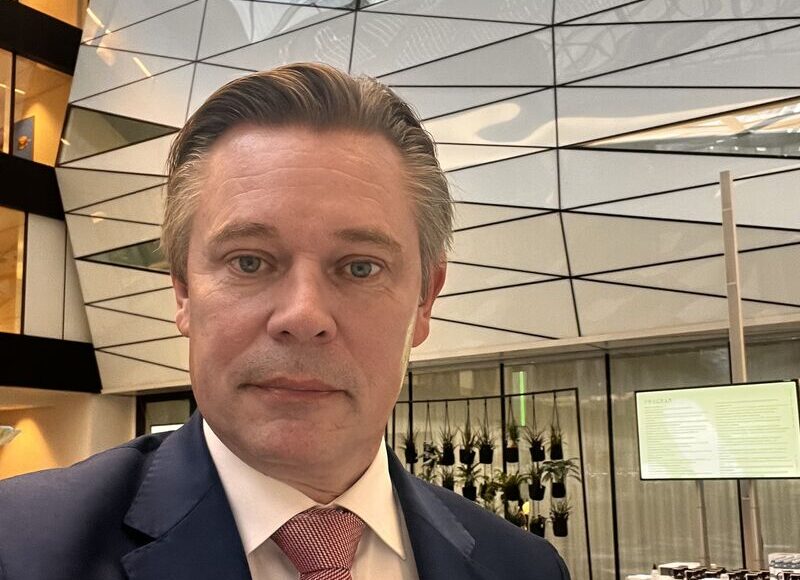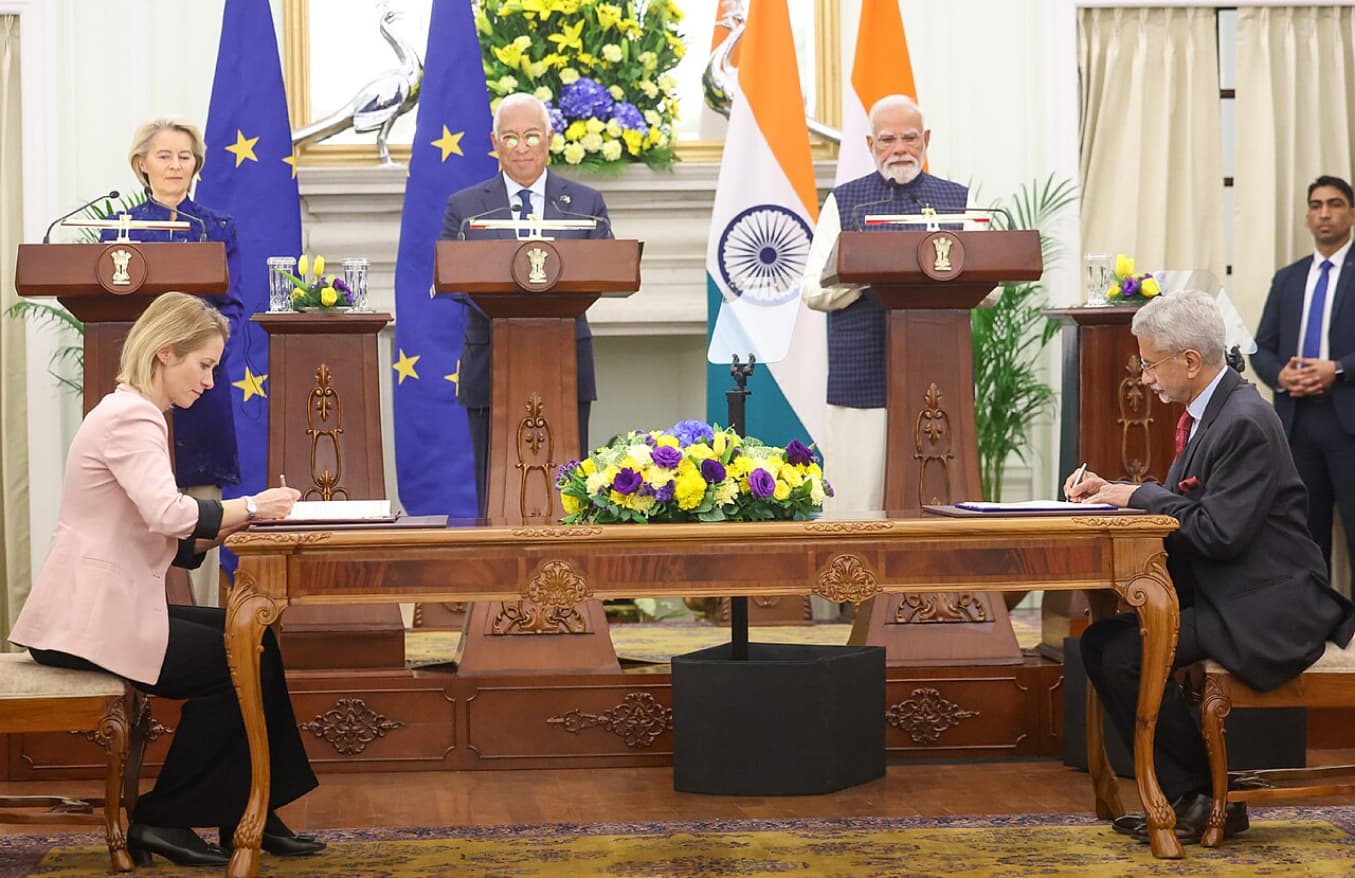In the rapidly evolving world of artificial intelligence and digital transformation, where technology often overshadows human connection, Niels Thomsen stands as a compelling reminder that the most powerful innovations emerge when human values meet cutting-edge capabilities. His journey from a Danish boy scout to a leading AI strategist across Europe reveals how foundational principles can guide transformative leadership in an age of unprecedented change.
“Leadership is about enabling others to succeed,” Niels reflects on his core philosophy. “I see leadership as building a high-performing football team — everyone has a defined role, but the magic happens when the striker helps defend in a critical moment and the goalkeeper sets up an attack.”
This sports metaphor captures something essential about Niels’ approach to transformation leadership. Having spent 14 years in the boy scouts, he learned early that challenges are solved best when people feel supported. These formative experiences instilled adaptability, team spirit, and a belief in collective problem-solving that would prove invaluable decades later when leading complex AI implementations across multinational organizations.
THE EVOLUTION OF A STRATEGIC MIND
Niels’ career trajectory reads like a masterclass in strategic evolution. His early days at PA Consulting focused on solving discrete, complex problems with surgical precision. Each engagement was about delivering targeted solutions that addressed specific client challenges. Yet over time, a deeper realization emerged: the real power lies not in solving one problem but in enabling organizations to solve their own challenges repeatedly.
This insight became the foundation for his current work at Artefact, where his strategic focus has shifted from project delivery to transformation stewardship. “At Artefact, my strategic focus is on embedding AI, data, and digital capabilities into the very DNA of our clients’ operations,” he explains. “This means aligning technology adoption with culture, governance, and long-term capability building.”
The transition from PA Consulting to roles at AWS, Capgemini, and Atos provided crucial learning experiences. At AWS, he discovered the power of speed and customer obsession. Capgemini taught him the value of structured transformation, while Atos demonstrated the importance of resilience in complex, global change programs. Each role built upon his fundamental belief in a human-centric approach: trusting people, setting clear goals, and empowering them to deliver.
TRUST AS A COMPETITIVE ADVANTAGE
What distinguishes Niels’ leadership style becomes apparent when examining his approach to multi-regional teams and complex transformations. His Danish roots taught him to be blunt but kind, always honest yet respectful. This Scandinavian directness, combined with deep empathy, creates a unique leadership dynamic that adapts to cultural contexts while keeping values constant.
“In multi-regional teams, success hinges on creating a shared sense of purpose, allowing for local flexibility, and fostering open, honest communication,” he explains. This approach has proven particularly valuable as he’s navigated the distinct business cultures across the Nordics and Germany.
His methodology begins with listening and observing. Every organization has its own rhythm, language, and decision-making style. In highly structured cultures, he introduces agility gradually, demonstrating how flexibility can coexist with governance. In entrepreneurial cultures, he brings structure and process to channel creativity into measurable impact.
“I see cultural diversity as a strength,” Niels notes. “The richest solutions often come from blending perspectives.” This adaptability has enabled him to lead successfully across industries ranging from manufacturing and finance to retail and public services.
REDEFINING AI TRANSFORMATION
While many organizations approach AI as a technology implementation, Niels advocates for a fundamentally different perspective. His work reveals that successful AI transformation requires addressing two critical misconceptions that plague many enterprises.
The first misconception is treating AI purely as a technology play. “In reality, 70% of AI success is about people, processes, and culture,” he emphasizes. The second involves prioritizing speed over preparation. “Moving too fast without governance can create ethical, legal, and reputational risks that are hard to undo.”
At Artefact, this philosophy translates into strategic adoption focused on clear use cases, stakeholder engagement, robust data foundations, and responsible AI principles. One compelling example involves their work with a major European retailer operating across France and Germany. By integrating advanced machine learning models for demand forecasting, they achieved remarkable results: stockouts decreased by over 20% and inventory turnover improved by 15%.
“This not only boosted revenue but also reduced waste, aligning commercial success with sustainability goals,” Niels explains. “Crucially, we trained in-house teams to operate and evolve the models, ensuring the transformation was permanent.”
This case study illustrates his broader approach to AI integration: evolutionary rather than revolutionary change. “Start with augmenting existing processes rather than replacing them entirely,” he advises. “Select pilot areas where the business impact is clear and measurable, then scale gradually.”
THE FUTURE OF EXECUTIVE DECISION-MAKING
Niels’ vision for AI’s role in executive decision-making by 2030 reveals both ambition and pragmatism. He anticipates that AI, particularly Agentic AI systems capable of autonomous, goal-driven actions, will become trusted partners in boardrooms worldwide.
“By 2030, AI will not only provide real-time analysis, predictive risk modeling, and dynamic scenario planning but also proactively identify opportunities and threats before humans spot them,” he predicts. “Executives will work in tandem with AI agents that can execute complex research, negotiate trade-offs, and simulate outcomes in minutes.”
This transformation will allow leaders to focus on distinctly human aspects of leadership: empathy, ethics, and long-term vision, while leveraging machine precision for operational excellence. However, Niels is clear about the human element remaining central to success.
COMMERCIAL INNOVATION THROUGH PARTNERSHIP
The evolution of Niels’ approach to deal-making reflects broader shifts in how complex transformations are structured and delivered. Traditional time-and-materials or fixed-price structures often fail to reflect the shared-risk, shared-reward dynamic that today’s programs demand.
“Increasingly, we are embracing outcome-based models that link our success directly to the client’s business results,” he explains. “These models do more than just align financial incentives; they create deeper trust and signal our commitment to stand shoulder-to-shoulder with our clients.”
This philosophy extends to his negotiation approach, heavily influenced by the principles in Fisher’s “Getting to Yes.” He focuses on shared interests rather than fixed positions, aiming for solutions where all parties emerge as winners. “Adversarial negotiations might close deals but rarely lead to long-term success,” he observes.
One complex digital transformation deal exemplified this approach when scenario and outcome planning helped address client uncertainty about future benefits. By showing multiple implementation pathways with clear triggers, they provided both confidence to commit and flexibility to adapt, ultimately delivering a 3-4% bottom line impact while freeing operational costs for reallocation to innovation and business transformation.
REGIONAL MASTERY AND CULTURAL INTELLIGENCE
Niels’ extensive experience across Denmark, the Nordics, and Germany has provided deep insights into how different markets approach digital transformation. His analysis reveals distinct patterns: Nordic markets value collaboration, sustainability, and trust in vendor relationships, while Germany emphasizes precision, process excellence, and thorough validation before scaling.
“In Northern Europe, success is built on trust and authenticity,” he notes. “Overpromising or exaggeration can cause lasting damage to relationships.” Decision-making tends to be more consensus-driven, requiring engagement with broad stakeholder groups. Demonstrating genuine local commitment through physical presence, local talent investment, and cultural understanding signals seriousness and builds credibility.
This regional expertise has proven invaluable in white-space selling, where he identifies untapped opportunities by looking for industry inflection points, regulatory changes, technology shifts, or evolving customer expectations. “White-space selling starts with asking ‘What’s next for our client’s market?’ rather than ‘What can we sell?’” he explains.
BUILDING SUSTAINABLE IMPACT
Central to Niels’ philosophy is the concept of business case realization, which he defines as ensuring promised value is both delivered and sustained. “I see it as a living commitment, not just a sales document,” he emphasizes. “It should guide execution and keep us accountable to outcomes that matter.”
His approach to metrics focuses on those tied directly to client strategic priorities: revenue growth, cost efficiency, customer experience, market share, or ESG impact. Regular reviews and transparent governance enable progress tracking, benefit sustainability, and course corrections when needed.
This commitment to sustainable impact extends to his team development approach. Ensuring continuity from RfP to implementation requires early alignment between sales and delivery, with delivery leaders involved from the proposal stage to ensure realistic commitments and seamless transitions.
A VISION FOR HUMAN-CENTERED AI LEADERSHIP
As the business world grapples with AI’s transformative potential, Niels offers guidance grounded in both technical understanding and human wisdom. His advice to future executives navigating AI and digital disruption is both simple and profound: “Stay curious, stay human, and stay in command.”
“The technology will evolve faster than any one leader can master, but your role is to ensure AI serves the organization’s purpose, not the other way around,” he explains. “Understand the capabilities of tools like Agentic AI, but lead with empathy, integrity, and clarity of purpose.”
This philosophy reflects his broader belief that in the age of intelligent machines, the most successful leaders will be those who can blend human judgment with machine precision to create meaningful, sustainable impact. It’s a perspective shaped by boy scout values, refined through decades of transformation leadership, and focused on a future where technology amplifies human potential rather than replacing it.
THE CONTINUING JOURNEY
Today, as Partner at Artefact, Niels continues to shape how organizations approach AI transformation. His work spans from strategic consulting to hands-on implementation, always with the underlying belief that lasting change requires both technological sophistication and human connection.
His journey from Danish boy scout to AI transformation leader illustrates how foundational values can guide us through technological revolution. In an era where artificial intelligence promises to reshape every aspect of business, leaders like Niels demonstrate that the most powerful transformations occur when cutting-edge technology meets timeless human principles.
The future belongs to those who can navigate this intersection with both curiosity and wisdom, staying true to human values while embracing technological possibility. In Niels Thomsen’s career, we see a roadmap for this balance: trust-first leadership that enables others to succeed, cultural intelligence that bridges global and local needs, and a vision of AI as a partner in human achievement rather than a replacement for human judgment.






